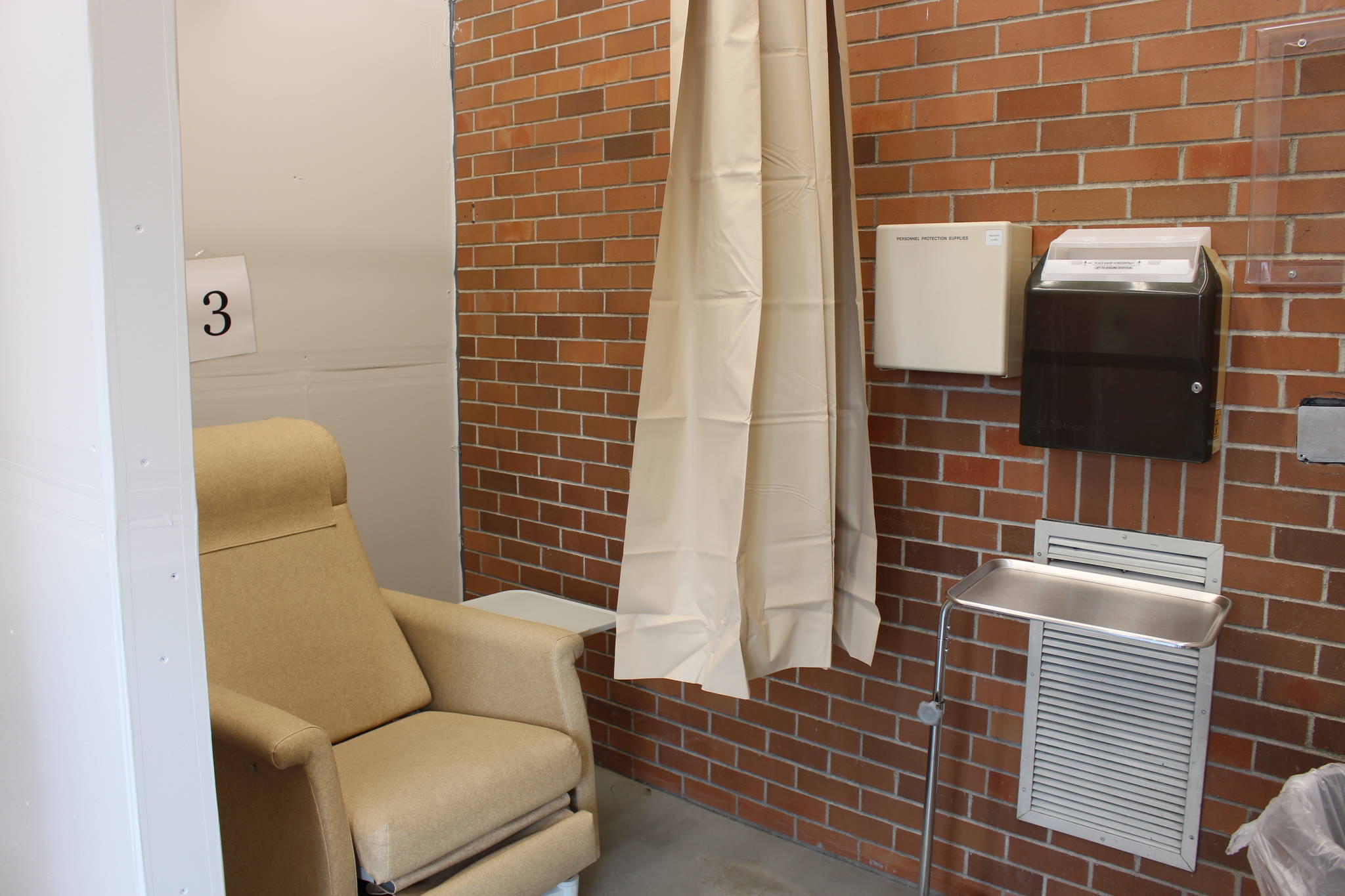The expiration of Alaska’s statewide disaster declaration has left peninsula hospitals mostly uncertain about what their future holds.
The declaration expired on Sunday after both the Alaska Legislature and Gov. Mike Dunleavy failed to extend it. Among other things, the declaration guided the state’s rollout and distribution of the COVID-19 vaccine and made the state eligible for money from the federal government.
Dunleavy has said recently that Alaskans should not be alarmed about the declaration expiring and that it will allow Alaska to begin focusing on pandemic recovery.
While daily COVID-19 case increases remain low and Alaska continues to lead the country nationwide in the percentage of the population that has received at least one dose of the COVID-19 vaccine, hospitals on the peninsula are still trying to work out what exactly the declaration’s expiration means for their operations.
Among other things, the expiration means that hospitals can no longer open overflow beds, which places like Central Peninsula Hospital relied on late last year, when COVID-19 cases surged nationwide. At one point, CPH was treating 63 inpatients, though the facility is licensed for 49 beds.
CPH External Affairs Director Bruce Richards said Wednesday that, so far, the hospital is doing fine, but that they could run into issues if there was a significant uptick in COVID patients. As of Wednesday, CPH was only treating one patient who was COVID-positive.
Richards said that CPH’s existing operations related to visitation and mask requirements are still in effect, but that there is still a lot that CPH doesn’t know when it comes to losing the declaration. One thing Richards said the hospital is expecting to lose are “blanket waivers” that were issued by the Centers for Medicare and Medicaid Services (CMS).
Richards said that blanket waivers allowed the hospital to open overflow beds and modifications the hospital made to convert hospital rooms to negative pressure rooms. Those modifications, Richards said, will likely “run afoul” of federal regulations without the waivers.
“We are all trying to figure out what is still allowed or not allowed,” Richards said. “I’m not sure anyone really knows.”
This is especially true when it comes to off-site screening, COVID testing locations, vaccine distribution and resources requests that CPH routinely makes to the state for things like personal protective equipment (PPE), Richards said.
CPH CEO Rick Davis said during a presentation to the Kenai Peninsula Borough Assembly on Tuesday that the hospital is continuing to operate under the emergency operations framework, and that they have seen a decline in the number of COVID-positive inpatients being treated.
“We seem to be in a pretty good place,” Davis said. “I’m knocking on every piece of wood I walk by that that trend continues.”
In Homer, South Peninsula Hospital Public Information Officer Derotha Ferraro said Wednesday that everything is “in a holding pattern” until they receive further guidance from the state announcing what will stay the same and what will revert to former guidance, if anything. As a result, Ferraro said, SPH hasn’t experienced any changes to their current operations.
In addition to the changes in bed licensure, Ferraro said potential changes include restrictions on locations for care and visiting nurses needing to have an Alaska state license. Under the declaration, visiting nurses from other states did not need an Alaska-specific license and SPH could use alternate care sites to respond to the pandemic, such as other areas of the hospital.
“We expect the State of Alaska will make some DHSS regulation changes to help health care providers respond, in absence of the declaration,” Ferraro said Wednesday.
As of Thursday, Alaska was one of two states in the nation to not have a COVID disaster declaration, along with Michigan, according to reporting by the Anchorage Daily News.
Reach reporter Ashlyn O’Hara at ashlyn.ohara@peninsulaclarion.com.

